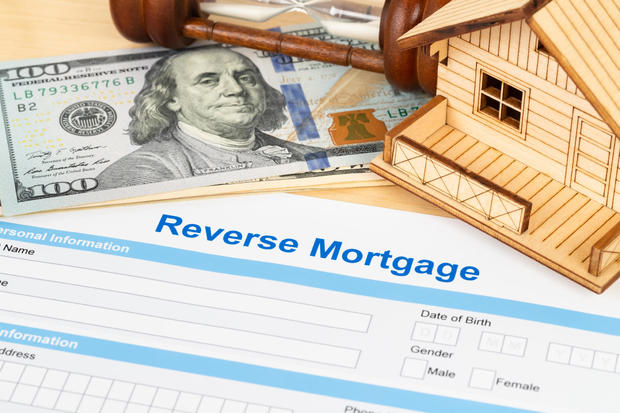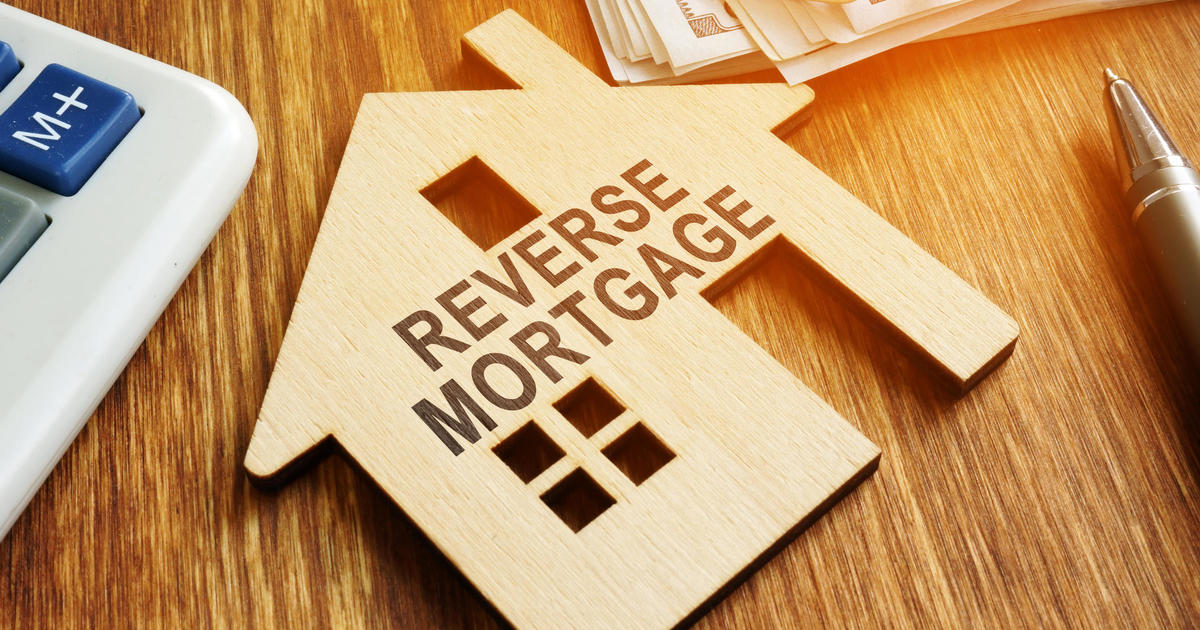Which reverse mortgage payout option is best?
Stubborn inflation continues to cause prices to climb on things like consumer goods and services, which is leading to financial challenges and stretched budgets for many people. But higher prices can be especially challenging for seniors on fixed incomes, who may not be able to afford the costs of the price hikes.
If you're a senior homeowner, though, the equity you've built in your home could help supplement your retirement income. For example, tapping into your home equity with a reverse mortgage could put money in your pocket while eliminating monthly payments on your home.
With a reverse mortgage, you borrow money from a reverse mortgage lender, and the money is issued either as a lump sum loan, via payments made over time or as a line of credit. The big difference between that and a traditional mortgage is that the money you borrow is paid back after you no longer live in the home, whether that's due to you dying, selling the home or moving into an assisted living facility.
That can make a reverse mortgage a valuable financial tool in retirement. But which payout option is best if you decide to use one?
Find out how a reverse mortgage could supplement your retirement income now.
Which reverse mortgage payout option is best?
There's no one-size-fits-all answer for which reverse mortgage payout option is the best. To determine the right option for you, it can help to consider how each option may help address your financial needs. Here's when each option could make the most sense:
When a lump-sum payout is best
When you use a reverse mortgage with a lump-sum payment, you get a lump sum of money, much like you would with a personal loan — and there are times when this payout makes more sense than the other options.
A lump-sum payout is "best for immediate, large expenses," says Alex Blackwood, CEO and co-founder of Mogul Club. A lump sum payment is "ideal for paying off debts or significant one-time investments."
It's important to note, though, that when borrow money with a reverse mortgage, interest charges accrue on the balance of what you owe. So, if you choose the lump sum payment option, you're charged interest on the full loan value from the first day (though interest payments can be deferred in many cases). But if you choose monthly payments or a credit line, your loan balance will build over time, which could save you money on interest.
Tap into your home's equity with a reverse mortgage today.
When a line of credit payout is best
"Our customers at Mutual of Omaha Mortgage overwhelmingly select the reverse mortgage line of credit for a number of reasons," says Alex Pistone, president of reverse mortgages at Mutual of Omaha Mortgage. "First, the unused line of credit has a guaranteed growth factor built into the program. The homeowner starts with an available line of credit limit, but this limit increases over time as the homeowner gets older."
But that's not the only benefit a reverse mortgage with a line of credit can offer.
"The reverse mortgage line of credit is also special when compared to a traditional HELOC in that it can never be canceled, frozen, or reduced… even if the value of the home declines," Pistone says. "So, the homeowner can count on those funds being there."
In turn, reverse mortgage lines of credit are typically best when the borrower wants their borrowing ability to grow and also wants to capitalize on the payout flexibility that this option provides.
When a monthly payout is best
If you're looking for steady, supplemental retirement income, a reverse mortgage with a monthly payout may be your best option.
"The monthly payment option is great for the homeowner who wants to receive a specific amount each month, and wants those payments to be on autopilot," says Pistone.
This option could benefit you by offering reliable income for the rest of your life.
"The monthly payments can be received either for a defined period of time, or there is a monthly lifetime payment option, which is guaranteed up to age 150," says Pistone.
The bottom line
So, which is the better reverse mortgage payout option?
"Ultimately, it comes down to a person's financial situation and intended use of liquidity in the property," says Blackwood. "If you are looking for a lot of money for a large expenditure, go with the lump sum; if you are not sure of the amount you need and you don't need the amount all at once, a line of credit only charges (interest) on the amount outstanding." Or, if you want regular payouts, the monthly payment option could work best.
Keep in mind, though, that you can mix and match payout options or change to a new one during the life of the loan.
"Homeowners are not required to select only one payout option," says Pistone. "They can choose a combination of all available options, and they can also change their payout choice at any time over the life of the loan."





